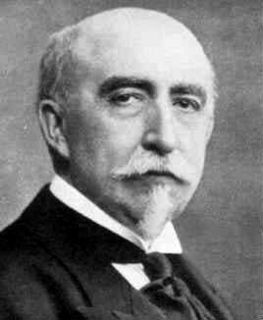 W
WNathaniel Bowditch was an early American mathematician remembered for his work on ocean navigation. He is often credited as the founder of modern maritime navigation; his book The New American Practical Navigator, first published in 1802, is still carried on board every commissioned U.S. Naval vessel. In 2001, an elementary and middle school in Salem was named in his honor.
 W
WSeth Carlo Chandler, Jr. was an American astronomer, geodesist, and actuary.
 W
WMiles Menander Dawson was an American author of poetry and philosophy, and ethics. He wrote books about the teachings of Zoroaster, Socrates, and Confucius. He was a member of the Confucian Society of China.
 W
WRufus King Delafield was an American banker and manufacturer.
 W
WJames Waterman Glover was an American mathematician, statistician, and actuary.
 W
WCharles Edward Ives was an American modernist composer, one of the first American composers of international renown. His music was largely ignored during his early life, and many of his works went unperformed for many years. Later in life, the quality of his music was publicly recognized, and he came to be regarded as an "American original". He was also among the first composers to engage in a systematic program of experimental music, with musical techniques including polytonality, polyrhythm, tone clusters, aleatory elements, and quarter tones. His experimentation foreshadowed many musical innovations that were later more widely adopted during the 20th century. Hence, he is often regarded as the leading American composer of art music of the 20th century.
 W
WEmory McClintock (1840–1916), born John Emory McClintock was an American actuary, born in Carlisle, Pennsylvania. He graduated from Columbia University, where he was tutor in mathematics in 1859–1860. From 1863 to 1866 he served as United States consular agent at Bradford, England. He served as president of the American Mathematical Society in 1890–1894 and of the Actuarial Society of America in 1895–1897.
 W
WPaul Robert Milgrom is an American economist. He is the Shirley and Leonard Ely Professor of Humanities and Sciences at the Stanford University School of Humanities and Sciences, a position he has held since 1987. He is a professor in the Stanford School of Engineering as well and a Senior Fellow at the Stanford Institute for Economic Research. Milgrom is an expert in game theory, specifically auction theory and pricing strategies. He is the winner of the 2020 Nobel Memorial Prize in Economic Sciences, together with Robert B. Wilson, "for improvements to auction theory and inventions of new auction formats".
 W
WIsaac Max Rubinow was a leading theorist on social insurance and one of the most influential writers on the subject. Rubinow had an M.D., from New York University Medical School and held a Ph.D. in economics from Columbia University. His 1913 book, Social Insurance, was the most influential early work on social security. His work impacted a generation of social reformers, including President Theodore Roosevelt, who used Rubinow's work in drafting the Progressive Party platform in 1912. The Progressive Party was the first of its kind to call for social insurance.
 W
WMichael Shackleford,, also known as "The Wizard of Odds", is an American mathematician and an actuary, best known for his professional analysis of the mathematics of the casino games. He is also an adjunct professor of actuarial science and mathematics at the University of Nevada, Las Vegas. He became interested in the mathematics of gambling at a young age, specifically after reading John Scarne's Guide to Casino Gambling.
 W
WEdward H. "Ned" Thomson III is an American Republican Party politician who has represented the 30th Legislative District in the New Jersey General Assembly since August 2017. He replaced Dave Rible, who left office to serve as Director of the New Jersey Division of Alcoholic Beverage Control. Thomson had previously served as mayor of Wall Township.
 W
WElizur Wright was an American mathematician and abolitionist. He is sometimes described in the United States as "the father of life insurance", or "the father of insurance regulation", as he campaigned that life insurance companies must keep reserves and provide surrender values. Wright served as an insurance commissioner for the State of Massachusetts.